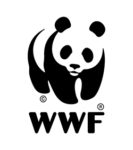
WWF Zambia Country Office
INTRODUCTION
World Wide Fund for Nature Zambia (WWF Zambia) is part of WWF International, the world’s leading independent conservation organisation with a global network in over 100 countries. Our mission is to stop the degradation of the planet’s natural environment and to build a future in which people live in harmony with nature, for the benefit of both people and nature. The organisation has been working in Zambia since 1962; focusing on wildlife, forests, freshwater as well as People and livelihoods
World Wide Fund for Nature Zambia (WWF Zambia) is seeking a competent Consultant – Climate Smart Agriculture. The project is looking for a climate smart agriculture expert who will be tasked with identifying and developing climate smart agricultural solutions in the target landscape using participatory approaches. The aim of the scope of activities is to ensure that the capacities of government staff, women, youth and men in target communities are built to identify and adopt sustained climate resilient measures in Forests, water, agriculture and livelihood activities in the target landscapes. This will enable the Community Forest Management Groups and Forest Farm Producer Organizations (FFPOs) and other groups to develop resilience in the natural resources that will lead to restoration.
OBJECTIVES OF THE PROJECT
The Climate Change Adaptation in Forest and Agricultural Mosaic Landscape project is being implemented by WWF Zambia in collaboration with FAO and the Ministry of Green Economy and Environment through the Forestry Department. The main objective of this project is to increase the resilience of productive landscapes and rural communities through organisational innovations and technology transfer for climate change adaptation. The project has four main components that provide pathways to change, thus; Component 1. Strengthening the management capacity at national level and within productive landscapes for climate resilience including water management; Component 2: Promoting innovations and technologies in agriculture and forestry value chains. Component 3: Enhancing diversified farm-based livelihood strategies for climate resilience and Component 4: Project monitoring, evaluation, and dissemination of results. The project is being implemented in Nyimba, Lusangazi and Petauke in Eastern Province and Sioma, Mwandi and Sesheke in Western Province.
Specific terms of reference that the consultant will address are as follows:
a) Analyse current knowledge of diversified farm enterprise development and climate smart agriculture, including climate services, within the target areas, and an assessment of existing and past projects and programs and plans (e.g. projects described above, knowledge held within government departments, CSAIP and the work of FAO) and identify relevant lessons for the project and opportunities for collaboration.
b) Map existing climate services at each step of the identified food value chain, including, input suppliers (e.g. climate resilient varieties, irrigation recommendations, crop management and harvesting techniques), production (e.g. precipitation and temperature forecasts, extreme weather events, pest and disease forecasts), processing, storage, transportation and marketing advisory services.
c) Through participatory approaches review past and present initiatives in the two regions as a basis for identifying climate resilient practices that will enhance the performance of crops, livestock and trees on farms, including identification of site-specific climate-resilient agriculture and agroforestry species and practices (e.g. for drought resistance, heat tolerance, pest and disease resistance and soil improvement). This information will inform the development of participatory community-based adaptation plans.
d) Develop possible climate smart strategies that will augment/ support delivery of interventions such as technical training in climate smart value chain, climate smart agricultural practices, post-harvest management, Integrated Pest Management e.t.c).
e) Develop a climate smart model for management of farms, crops, livestock, including conservation of germplasm for land races and their wild relatives, aquaculture and capture fisheries, to balance near-term food security and livelihoods needs with priorities for adaptation and mitigation.
f) Identify climate smart technologies that can be used in implementing climate smart agriculture, propose implementation plans and strategies to enhance adaptation of CST
g) To develop innovative use of different types of agricultural land in order to preserve and enhance its fertility and productivity.
h) Conduct Capacity building in CSA, Sustainable Forest Management (SFM), Sustainable Fisheries and Aquaculture (SFA), Renewable Energy Technologies (RET), and Early Warning Systems (EWS), Change management and climate change planning.
i) Develop guidelines for mitigation of climate change effects for FFPOs in the rural communities which build on environmental sustainability as a business strategy as we as farmer field schools to enhance community-based learning and technology dissemination and promote participatory integrated landscape management approaches.
j) Promote the adoption of appropriate Climate Smart Agricultural (CSA) technologies for different agro-ecological zones.
k) Identify a set of practices and technologies which can enhance the climate resilience of farming systems.
l) Identify strategies that will reduce the exposure of farmers to short-term risks, while also strengthening their resilience by building their capacity to adapt and prosper in the face of shocks and longer-term stresses
1. DELIVERABLES
a) An Inception Report
This should be drafted within 7 days of signing the contract outlining the envisaged methodology, tools, timelines and modalities of how the assignment shall be undertaken within the duration specified, clearly stating how the anticipated deliverables will be achieved.
b) Needs Assessment Report
A report clearly identifying any needs of the target communities and or groups in relation to climate smart agriculture practices for Forest and Farm Producer Organizations (FFPOs) and Farmer Field Schools found in target local communities that should be developed.
c) Training Materials where applicable
d) Detailed Reports where applicable
e) Full report on the assignments carried in the Project sites
2. DURATION OF THE ASSIGNMENT
The duration of the assignment is Fifty (50) working Days
3A) QUALIFICATIONS AND WORK EXPERIENCE
- A University Degree in Agriculture, Agribusiness, Business Management, Natural Resources Management and any other related field.
- A Master’s Degree in Climate Smart Agriculture Natural Resources is an added advantage.
- Five years demonstrated experience working with similar assignments, particularly community level development initiatives.
- Vast experience in the implementation of climate smart solutions in development
- Experience in developing training materials
- Experience in participatory capacity building of local communities
- Ability to collaborate with government structures at district leve
- Technical proficiency in the field of agriculture, natural resource economics, forestry, agriculture, wildlife, and social development studies.
- Ability to understand and speak local languages used in Western and Eastern Province is desirable.
- Good communication skills.
- Strong technical writing skills.
3B) QUALIFICATIONS FOR INSTITUTIONAL APPLICANTS
Interested corporate entities in providing the consultancy services must meet or provide the following requirements;
- Company profile with company registration certificates and any relevant certifications
- Proposal demonstrating understanding of the assignment and similar institutional experience
- Copies of relevant Qualifications as above for key staff to spearhead the activities.
- Six months’ bank statements for the business
- Valid Tax Clearance Certificate
- High regard for quality and tangible impact
- Proof of registration with all relevant regulatory bodies such as NAPSA, ZRA and Workers Compensation Fund
- Five years demonstrated experience working with similar assignments, particularly community level development interventions.
- Vast experience in the legal framework with regard to climate change and climate smart agriculture
- Experience in developing training materials
- Experience in participatory capacity building of local communities
- Ability to collaborate with government structures at district level
- Technical proficiency in the field of agriculture, natural resource economics, forestry, agriculture, wildlife, and social development studies.
- Facilitators must have the ability to understand and speak local languages used in Western and Eastern Provinces.
- Good communication skills.
- Strong technical writing skills.
4. REPORTING
The consultant reports to the Project Manager of the GEF7 /FAO Project. The consultant will also be required to work closely with other project staff spearheading various activities project components.
5. DUTY LOCATION
Lusaka, Zambia.
Interested applicants may send through proposals complete with:
- Cover letter addressed to the Procurement Officer, WWF Zambia Country Office.
- Company Profile if submission is being made as a company. In addition, kindly provide a VALID Tax Clearance certificate as well as PACRA certificate of incorporation. CVs of the lead consultant should also be provided.
- Both Technical and Financial Proposals inclusive of detailed work plan
- Trade references relevant to the assignment at hand.
The above should be submitted in Soft copy as a single PDF document.
All submissions should be emailed to [email protected] no later than Friday 28th June, 2024 at 17:00 hrs, with the email subject being Consultancy – BUILDING FOR CLIMATE SMART AGRICULTURE

